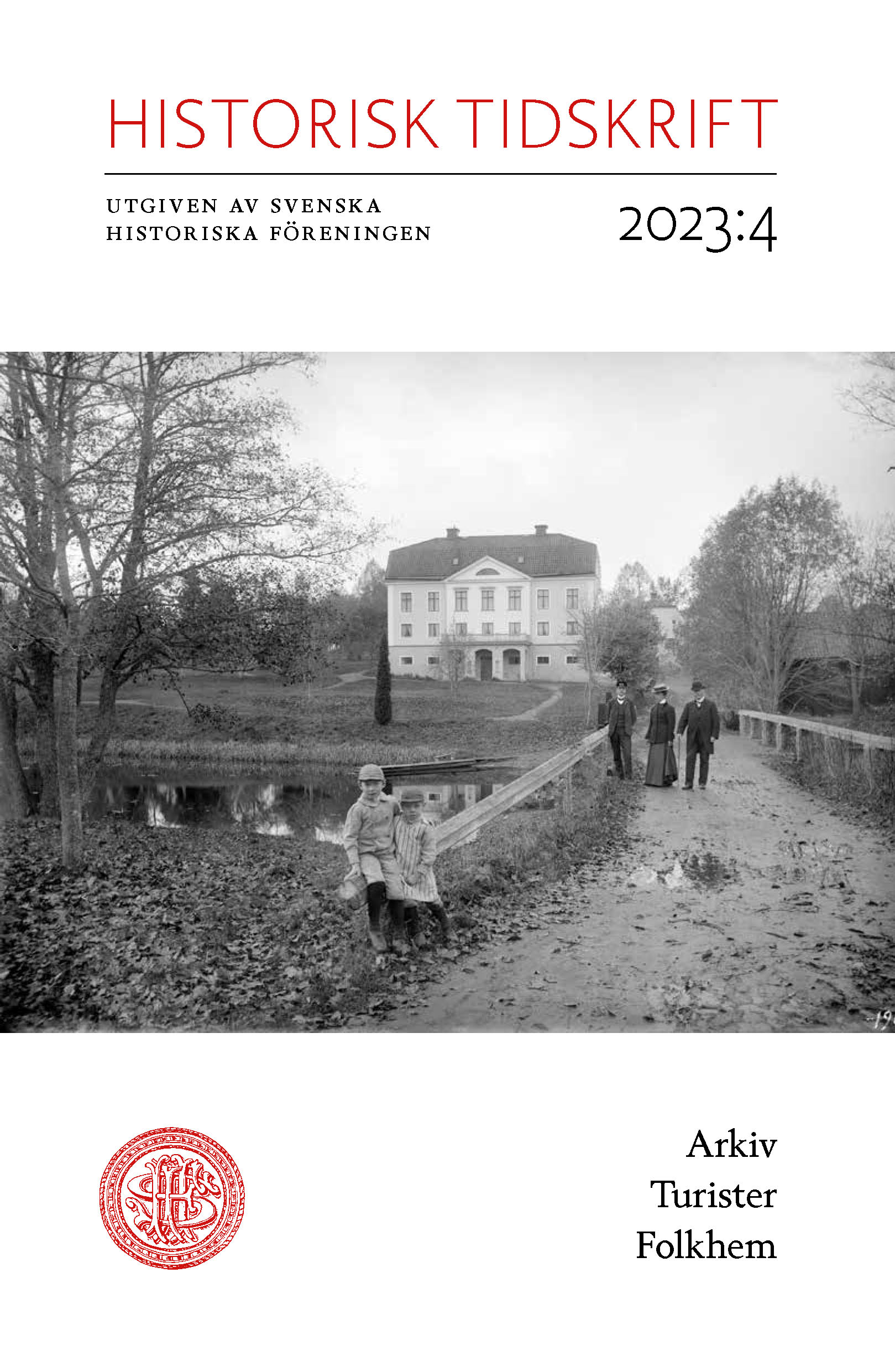Abstract
Historians’ imaginings about archives: A study of archives as means of historical knowledge acquisition in Historisk tidskrift, 1881–2021
In response to the literature’s claim that there is an increasing gap between archivists and historians and a dwindling connection between the archival and historical disciplines, I investigate in this article how Swedish historians have related to archives and archival material as historical sources, in both theoretical and empirical perspectives. The study is based on one of Sweden’s leading journals for the discipline, Historisk tidskrift, published by the Swedish Historical Society. The term ”archive” is analysed from the journal’s start in 1881 to 2021. Following the historian Hans-Jörg Rheinberger, archives and archival documents are seen as the ”epistemic things” on which academic history can build its production of knowledge.
The fact that archives and archival sources have played a significant role in history’s evolution into an academic discipline has attracted little interest. This study shows that archival documents have been seen as the historian’s main primary source for most of the period studied. The texts examined in Historisk tidskrift only rarely analysed the archive’s original, internal order and creation process, but constantly praised the use of extensive archival material. Changing historiographical patterns did not result in the questioning of the archives’ pre-eminence as a primary source to any degree, even though the changes meant that new questions were posed of archival sources and new types of source materials were used by historians. An unreflective view of archival documents was evident in the romanticisation of archives as dark and disordered, an approach present in Historisk tidskrift throughout the period studied. There were value judgements about the historian’s ”tribulations” in the archives, and trips to archives and the ”treasures” found there were romanticised. This approach contrasted with how historians, adopting a positivist role model, viewed archives as authentic and true. Given this contradiction, I would argue the historical discipline should take greater account of the context in which the archival material was created, preserved, and arranged.

